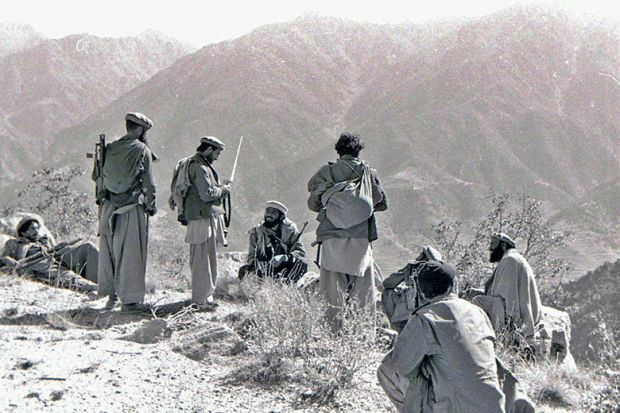Since the terrorist attacks of 9/11, few issues have been subject to more debate than the question over the rationale behind suicide bombing: what compels a person to strap on explosives and blow himself up in a crowded street? In attempting to shed light on this phenomenon, analyses have variously emphasised explanatory models that range from the “terrorist mindset” and brainwashing to the consequences of Muslim child-rearing practices and the motivational ideology of the so-called Salafi jihad. For discussion of these well-rehearsed theories, please look elsewhere.
In Caravan of Martyrs: Sacrifice and Suicide Bombing in Afghanistan, David Edwards argues that the rise of suicide bombing cannot be fully understood using terrorism or Islam as the sole or even primary lens. Rather, the phenomenon needs to be examined in relation to cultural and ritual practices associated with sacrifice that are particular to different locales and periods of time. In this highly readable account, Edwards traces the transformation of sacrifice that begins with the killing of a sheep as a demonstration of a tribe’s desire for peace. With the killing of thousands in Afghanistan in the wake of the Soviet invasion in 1979 and the dead becoming venerated as martyrs, the informal conferral of status on the casualties of war would become the foundation for a cult of martyrs exploited by different political leaders to advance their respective goals.
This repurposing of what Edwards refers to as the “machinery” of sacrifice – a concept that allows him to identify and analyse in detail a range of different “fuels” that have started the machine across time and space – set in motion a process of mutation that would lead a group of Arab men trained in Afghanistan to fly aeroplanes into the World Trade Center in New York on 11 September 2001. In time, it would further transform into a horrific form of voyeuristic entertainment in which sadism is recast as sacrality at the hands of Daesh and the transnational scattering of suicide missions of the present. Can the machine be stopped? We must hope, ironically, that the al-Qaeda leader Ayman al-Zawahiri will be proved right in his judgement that Daesh will discredit itself through its viciousness. But there is no guarantee that this will happen, or that, after being retooled so many times before, the sacrifice machine will simply seize up and cease to function.
At a time when the quality of academic research is measured in six-year intervals – as in the UK’s research excellence framework – and using questionable criteria, Edwards’ work is an important reminder that some of the finest scholarly work may begin, as this study did, without a clearly defined hypothesis and draw on decades of ethnographic, qualitative research. Caravan of Martyrs is an exceptional book and a must-read not only for those interested in the phenomenon of suicide operations and Afghanistan but for anybody trying to make sense of some of the most pressing security challenges of our age.
Christina Hellmich is reader in international relations and Middle East studies, University of Reading.
Caravan of Martyrs: Sacrifice and Suicide Bombing in Afghanistan
By David B. Edwards
University of California Press, 296pp, £24.95
ISBN 9780520294790
Published 6 June 2017
Register to continue
Why register?
- Registration is free and only takes a moment
- Once registered, you can read 3 articles a month
- Sign up for our newsletter
Subscribe
Or subscribe for unlimited access to:
- Unlimited access to news, views, insights & reviews
- Digital editions
- Digital access to THE’s university and college rankings analysis
Already registered or a current subscriber? Login




